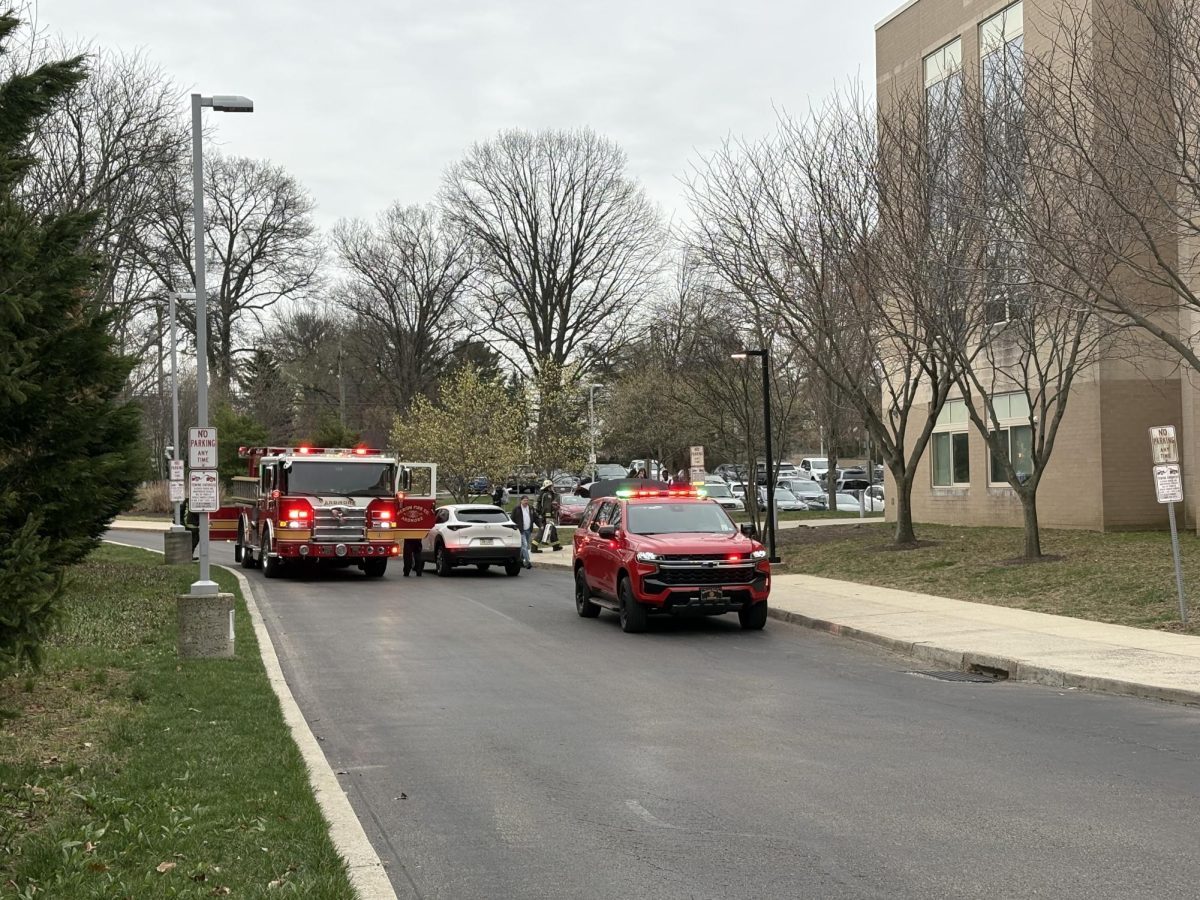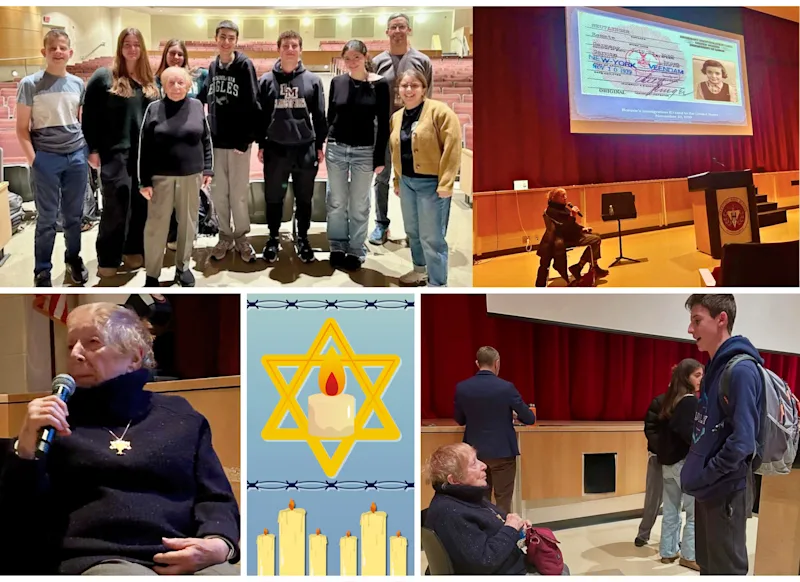
On April 3, Bala Cynwyd Middle School (BCMS) and the broader Lower Merion community were shocked to learn of the sudden passing of beloved Social Studies teacher Timothy Mohan. Mohan had served as a Social Studies teacher at BCMS since 1993, mostly as part of the 8-1 team in eighth grade. In addition to teaching, Mohan had served as athletic director for many years before stepping down from that role during the 2019-2020 school year.
Since Mohan’s passing, students and staff at BCMS have come together in various ways. Andrew Thomas, an eighth grade English teacher who had worked closely with Mohan for 28 years, expresses his amazement at students’ thoughtful memorials and recent acts. As students returned to the building, they immediately began to commemorate Mohan by expressing their favorite memories from his class and their appreciation for the time they had spent with him in heartfelt letters. A memorial table was later placed in BCMS’s central foyer for individuals to write messages to Mohan’s family. Following his passing, Thomas noted that many community members and students, some who they had taught over 25 years ago, reached out to express their condolences. “[Mohan] was our gravitational center,” Thomas said, “From the moment he arrived [at BCMS], he was a natural leader.”
As a teacher, Mohan was passionately dedicated not only to teaching his students, but to understanding their specific needs as learners and individuals. “He had a huge personality,” remarks Thomas, “For all of the energy that he put out, there really was a lot of fine perception behind the scenes. He was really good at understanding when someone didn’t know something.” Mohan consistently looked to meet students where they were, even if they found it difficult to articulate the questions they wanted to ask. As related by Caroline McNally ’27, a former student of Mr. Mohan’s class, “[Mohan] was extremely dedicated to not only his teaching, but his connection with his classes and individual students.” Just as he tried to look past the surface in his interactions with students and teachers, Mohan taught students to look past the first images that emerged from their study of American history. Any student of Mohan’s history class could recall his intense focus at th start of the year in describing that “history is written by the victors.” In emphasizing this dynamic, Mohan was able to establish the framework for his teaching style. He wanted to teach students to look past
the perception that first emerged from any newspaper, textbook, or interview. Instead, he wanted his students to be able to analyze the details that were not always easy to articulate, similar to his attempts to connect with those around him.
In 2009, Mohan looked to begin a career in administration at BCMS, holding the position of Assistant Principal for a little over a half a year. However, in that administrative role, Mohan found himself missing the conversations and classes with students. When he recounted his displeasure with the position to his daughter, she encouraged him to return to the classroom. In explaining his rationale to his classes of leaving his role as Assistant Principal, Mohan would proudly express his satisfaction with returning to the classroom. One anecdote or article could not accurately encapsulate the impact that Mohan left on all of the individuals around him. However, Thomas expressed that in reflecting on his many years working with Mohan, one particular instance came to mind. Every year, BCMS’s chorus, band, and orchestra would travel to Dorney Park for a music competition, leaving about thirty eighth grade students at school for the day. One year, two of Mohan’s students who had not gone on the trip expressed dissatisfaction with having been left at the school. Instead of dismissing their complaints, Thomas relates that Mohan understood that these students were not upset about just the trip; instead, “they were kind of talking about the whole fabric of the school’s culture and how, sometimes, the kids who aren’t the highest academic achievers or […] are still growing up and gravitate towards questionable choices, aren’t really thought of. That, sometimes, those kids aren’t really thought of and, when they are, they aren’t really thought of having any value.” Empathizing with their complaints, Mohan asked the students where they would like to go, to which they responded that they would like to go bowling. After contacting a friend of his who owned a bowling alley, Mohan gathered the remaining eighth graders to take a trip to the bowling alley for the day. Every year that followed, Mohan would bring those students who did not attend the trip to Dorney Park for a day at the bowling alley.
Throughout his career, Mohan always looked to reach other individuals where they were. He often made the leap to understand others’ feelings in an attempt to make his classroom and the school an environment that truly welcomed all those who came to it.






